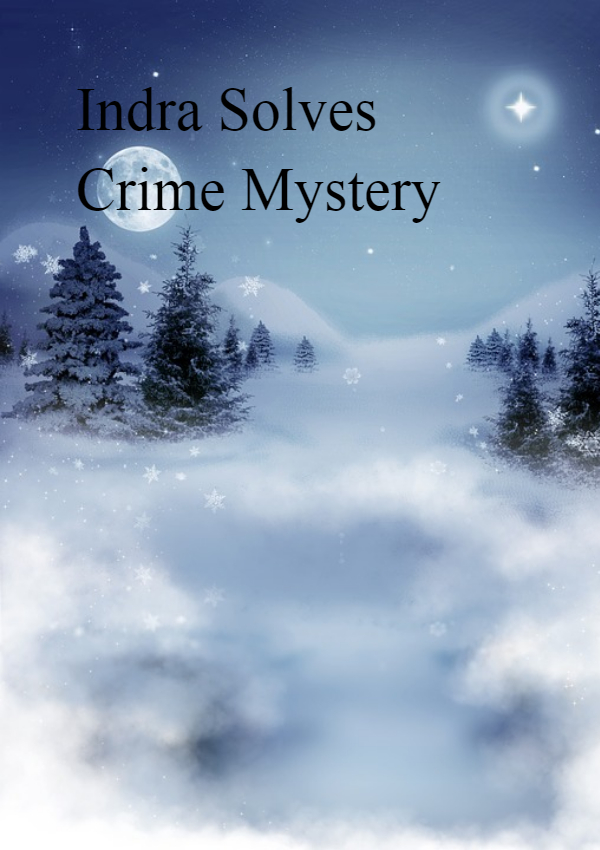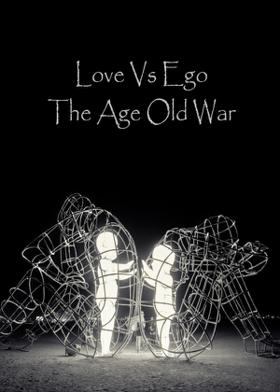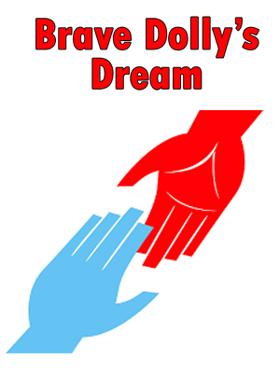Indra Solves Crime Mystery
Indra Solves Crime Mystery


Indra - The god of Rain solves the crime in Ujjain
It was an era of where the kingdom administration reigned supreme in Ujjain under the Gupta empire, with each arm of the State administration, i.e. the legislature, the executive and the judiciary in complete synergy with each other and ushering in an era of knowledge and prosperity, an environment which was both eco-friendly and economic friendly as well. The participation and recommendations of the private sector in the economy and State administration both directly as well as indirectly was substantial in the selection of office-bearers as well as controlling them. The king “Suryanshgupta”, true to his name was not only efficient but effective in the planning, implementation and control process of governing a kingdom. Mechanisms were put in place with the assigned doers doing to their best of ability and from hearts.
Arts, culture, agriculrture, trade and industry flourished with and a key feature being a well managed “stock and banking” driven economy. The actual money currency circulation was minimum. The copper and nickel currencies remained idle in the official treasuries of the kingdoms and their assigned banks as the royal stamp bearing “expenditure vouchers” were more in circulation. These “expenditure vouchers” of hard paper were as good as money coming in four different colures White (denomination 10), Blue (denomination 20), Silver (denomination 50), Golden (denomination 100). The rest of the denomination in unit 1 were issued in the form of small ticket pads with units 1 to 100 (redeemable for Rs. 100). Suppose a boat ride crossing the ‘Shipra’ river costs Rs. 25/-, the traveller will have to shell out a blue voucher (representing R. 20/-) and five Rs. 1 tickets from his purse [made up of mostly jute, cane, bamboo or thick cloth, with internal lining made out of paste of a tree bark name ‘mimosa’. ‘Mimosa’ paste was a material which became as a waterproof transparent film over the surface it was smeared on. It was used as a shield over the royal seal marks appearing on “expenditure vouchers”, ticket pads“, government documents, legal documents, stamp papers, stock certificates etc. Mimosa” plantation was thus controlled and totally government owed. Both the money and the money carrying bags/purses were supplied by the government to the public through its authorised banks. Being a vulnerable commodity, ‘mimosa’ plantation and usage was kept under strict vigil and the money bags too were manufactured and supplied by the government as the internal lining was made out of ‘mimosa’, which was in possession of government only.
Another remarkable feature was the existence of stock issued by the government as well as the private industry ensuring the availability of uninterrupted capital for the primary, secondary and the tertiary industries of the economy, in addition to the government projects. This ensured a continuous upward graph of economic growth, working on the principle of “participation of all” and “savings to investment”. Mechanisms were geared up to ensure that no money is left idle and each currency is in circulation to boost economy and affluence. These stocks were issued under the royal order and seals bearing denominations from Rs. 100 to Rs. 1000, freely negotiable, could be encashed, redeemed at any government bank by the bearer. The affluence of Ujjain attracted many traders and businessmen from nearby kingdoms, ‘Paraspuri’, ‘Kesarnagari’, ‘Chandangarh’ etc. Since the outside traders used to stay for some days in Ujjain for buying and selling the commodities, there were dedicated guest houses for them with arrangements including ‘chariot parking as well stay of their ‘chariot riders’. There was also a provision of ‘half citizenship’ for the nationals of other kingdoms, which was accorded by the government of Ujjain on fulfilment of three conditions, i.e. (1) Experience of trade/activity in Ujjain for at least 5 years; (2) Depositing a one-time fee of Rs. 1,51,000/-; and (3) Endorsement/recommendation obtained from their respective kings. These half citizens could trade, practice any profession, buy or sell property or stocks in Ujjain, own a residence and enjoy all other benefits available to the citizens of Ujjain except voting rights and entry into Ujjain Government Services. They also deposited applicable taxes on the income generated by them during the period of stay in Ujjain.
The armed wings of the administration and the internal police were equally powerful to deal with any sort of external aggression or internal conflicts, possessing well trained officers and latest available weaponry. However, with an inherent environment of honesty and integrity, the security set-up had little to do except to aim for continuous upgradation in arsenal, enhancement in the level of trainings and keeping the spirit of patriotism and preparedness alive among the cops and the soldiers.
King of Ujjain, ‘“Suryanshgupta” was enjoying well deserved rest after devising effective systems and putting them in place, thus allowing an economy friendly environment in a prosperous and secure kingdom. He was concentrating more on the foreign policy and often busy in visiting the nearby and distant kingdoms, befriending his counterparts at other geographic locations, signing a number of treaties including river water sharing, joint forest administration, free flow of traders, goods and services, promotion of arts, culture, tourism and technical know-how, etc. This had a synergic effect among the kingdoms on board with each kingdom sharing the best of practices in their fields of specialization, thus reaping the benefits of collective efforts. Suryanshgupta was thus able to generate prosperity not only in his kingdom but other kingdoms as well. The Kings, high ranking government officials, businessmen and other celebrities of those kingdoms used to comment that ‘Suryansh and Synergy always travel together’. However, Suryanshgupta was very particular in safeguarding the currency of Ujjain and never welcomed the request of other kings to share the technology of ‘mimosa’ coating over the signs of royal seals appearing on the currency, share certificates, legal, property and other official documents. The idea of floating a common currency for all the member kingdoms, as proposed by the king of ‘Paraspuri’ also evoked a negative response from ‘Suryansh’ while all other kings recommended the same during a recently concluded annual economic meet of the kingdoms. ‘Suryansh’ very well knew that a little amount of ‘mimosa’ could be tremendously damaging for Ujjain if fallen into wrong hands. Hence, the security of mimosa plantations and its usage assumed top priority for the king and was delegated only to a handful of trustworthy ministers, officers and guards. Illegal possession or theft of mimosa wood attracted the severest of all the penalties, i.e. ‘death penalty’. Hence, no such instance had been reported so far
The traders being regulars to the Ujjain city were well versed with the culture and dialect of the place. Two traders, one from ‘Kesarnagari’ by the name, ‘Ratan’ and another from ‘Paraspuri’ by the name ‘Naresh’ were quite popular. While ‘Naresh’ used to supply best quality clothes, threads, buttons and other stitching material, ‘Ratan’ was an excellent tailor who could take the measurement of his clients just by a glance and convert the raw clothes into charming dresses greatly adored by all. Both were busy businessmen from nearby kingdoms whose brand name or store name ‘vastrashilpi’ was popular among the masses in Ujjain. However, the cloth being expensive and embellished with further expensive material like stones, beads, diamonds, gold, silver etc., the clientele of Naresh and Ratan included high profile businessmen, professionals and high ranking government officials. On the festive days, each trader also presented a gift to the King of Ujjain, ‘“Suryanshgupta” to convey their thanks for allowing them to stay and trade in Ujjain. Both were half citizens of Ujjain and owned a cloth store vastrashilpi’ and a residential house built at the first floor. They worked and stayed together and visited their home kingdoms once in a month to meet their families, to collect raw material for their clothing business and to convey their rich experiences as half-citizens of the city of Ujjain.
Once in five years, a currency stock-taking exercise used to be carried out meticulously in Ujjain with each insider as well as each half citizen declaring his wealth at the assigned banks and their branches. The verification process included government-issued paper money (“expenditure vouchers”), bonds, share-certificates, deposit receipts, property documents etc. representing money. It was carried out to ensure a fare amount of money supply in circulation and verifying the authenticity of monetary documents thus keeping a check on malpractices. It also was an effective tool in verifying the financial status of an individual as a citizen or a half-citizen, possession of proportionate assets and deposition of applicable taxes. Inflation was also kept under control by required fiscal and monetary policies by the government.
Everything was going perfect for Ujjain till the recently concluded stock taking wherein it was discovered that the currency is circulation was much more than what was issued officially. The royal sign and mimosa coating were the sole proof of the authenticity of currency and other documents which were verified very well by the banking officials and found to be authentic. Not even a single case of fake currency had been reported so far. Theft of mimosa was out of question as it was guarded well. The natives of Ujjain had a striking reputation for integrity. Suspicion on the outside traders or half citizens was also little as they contributed generously towards the welfare activities of Ujjain. Above all, any outsider deriving prosperity from Ujjain would not like to indulge in any unfair practice on the soil of Ujjain. Considering all these facts, king ‘Suryanshgupta’ and his office bearers had many sleepless nights. No clue regarding excess currency in circulation could be found out. Nonetheless, investigation continued steadfastly.
One cool early morning, one fisherman on the banks of ‘Shipra’ river shouted with astonishment as his fishing net got caught in something unusual. A pair of blue coloured shoes floating in the river were visible. Gradually, a pair of legs emerged above the water and now a dead body floating on the river terrified the fisherman to the extent that his shout attracted the attention of a milk-seller going on a bullock cart. Fisherman climbed up the cart and pointed towards the floating body. The milk-seller without wasting time made the cart run as fast as the bullock could run. As soon as they approached a check- post, they informed the guards about the floating body. One of the guards got up and mounted on a horse galloped towards the headquarters alerting the higher ups and to bring Ujjain police investigation team at the site.
Supratik, the Chief of Police and Internal Security at Ujjain, walked rapidly up to the riverside, just as the body was being fished out. The officer supervising the operation turned around and saluted his Commander immediately. “Sir, he is the famous tailor ‘Ratan’ from ‘Kesarnagari’ who stays in Ujjain with ‘Naresh’, the cloth trader from ‘Paraspuri’, the officer conveyed to the Police Chief”. “How strange!”, Supratik murmured. “Partner of famous ‘vastrashilpi’ store, I met him yesterday night only at the royal palace when he was bidding final goodbye to the king. He had decided to leave Ujjain for good as he wanted to settle down with his family in his native kingdom ‘Kesarnagari’, while his trading partner Naresh from ‘Paraspuri’ wanted to continue in Ujjain”. “But why would anyone want to kill him or why would he want to commit suicide?”. These questions raced past the mind of Supratik, the Police Chief, who was supposed to solve the fist mysterious death case of a half-citizen in Ujjain. “Sir”, there is a puncture mark on his neck”, the officer yelled. Supratik examined and concluded it to be a cold blooded murder wherein the murderer dropped the body in the river after killing the deceased.
The King was informed, the body was sent for examination, the investigation team examined the area for possible clues but could not find anything unusual. Supratik reached the ‘vastrashilpi’ store with his investigation team and found the front door open.
Naresh, who was sleeping on the residential floor came down with hazy eyes and conveyed surprise with an astonished look seeing Police Chief early morning. “Do u know where is Ratan? “enquired Supratik. Naresh mumbled, “Yes sir, he must have gone for a morning walk as per his habit as he is not in his bed and the front door was already open. But what is the matter? “I am sorry to say that Ratan has passed away. We fished out his body from ’Shipra’ river early morning”, Supratik informed Naresh. Hearing the news, Naresh turned white with astonishment and could not utter anything till Supratik shook him a little to bring him back to senses. Naresh lamented with a surprise, “but why would anyone want to kill him or why would he want to commit suicide?” The Police Chief, said “that is bothering us as well”. “But why he decided to leave Ujjain for good and settle in his native kingdom ‘Kesarnagari’. He was quite famous here”, Supratik inquired. Naresh replied “today he wanted to leave Ujjain and settle in ‘Kesarnagri’ with his wife and old parents” “How sad”, he murmured in a weeping tone.
Investigations progressed but no clue could be found out. Meanwhile, the body of Ratan was sent back to his kingdom ‘Kesarnagri” with condolence messages, Ratan’s belongings and earnings and the subsistence amount for the aggrieved family of the deceased. Naresh had lost interest in his work and decided to leave Ujjain forever as the memories of his partner Ratan continued to haunt him. He even conveyed to ‘Suryanshgupta’ his desire to leave Ujjain.
Inquiries revealed that Naresh decided to sell off his property and purchase gold worth 60 lakhs and take it back to his native place ‘Paraspuri’. Supratik got alarmed and dug out all the financial records of Naresh and Ratan and took assistance of financial assistant. He came down to the figures which startled him a lot. The tax was paid by Naresh on a total income of 36 lakhs during seven years out of which he gave 6 lakhs to his tailor partner Ratan, paid 5% tax, bought a house cum store for 12 lakhs, gave generous donations, bought a chariot, paid for half-citizenship for himself and his tailor Ratan, bought raw material and incurred expenditure for a decent living in Ujjain with the rest of the amount. His savings and proceeds from the sale of house cum store (at current market price) could not be more than 20-25 lakhs. How could his wealth swell upto 60 lakhs? Supratik inquired from the currency department the extent of figures indicating circulation of fake currency during the stock taking exercise. These figures were kept secret and were to be told only with the permission of the king. He was shocked to learn that the over circulation was to the tune of Rs. 33-35 lakhs which matched exactly with the suspicious inflated amount representing the wealth of Naresh.
Supratik had to seek King’s intervention allowing him to search the entire ‘vastrashilpi’ store. However, nothing suspicious could be found except tailoring material, needles, buttons, cloth, authentic currency, some gold, sewing machines etc. The king was a little embarrassed to have ordered the search of a famous half citizen trader, but it was a murder case. Meanwhile, Naresh conveyed his slight displeasure to the Ujjain authorities over the search of his house and decided to leave Ujjain at the earliest with purchased gold and his belongings in his chariot. Supratik again ordered a thorough check of his pockets and his chariot at the exit points to ensure that he does not commit a mistake in allowing Naresh to leave Ujjain. Although irritated, Naresh allowed himself to be examined. Again, Supratik had to face embarrassment as nothing suspicious could be found except the gold he purchased. He did not take a single currency of Ujjain with himself as he converted all his earnings and sale proceeds into gold.
The weather changed suddenly with winds blowing gently and then forcefully with dark clouds surrounding the sky. Within minutes, there was heavy downpour from the sky. At the exit point, Naresh immediately pulled out a sheet to cover his belongings on the chariot. However, Naresh got drenched in the rain. Supratik immediately noticed that the famous trader who is well known for his excellent cloth material and eye-catching clothes, is suddenly looking shabby with muddy brown stains on his cloth near the buttons. He noticed that in fact the cloth buttons were deformed and melting gradually in the rain. Then there was a peculiar smell. Supratik took out a currency voucher from his pocket and smeared some drops of water on the mimosa coating. It was the same smell which was coming out of the wooden button of Naresh.
Aware of the death penalty for possessing mimosa illegally, Naresh confessed without much interrogation that he used to bribe one government official in the currency department to get some mimosa wood and learnt the art of printing expenditure vouchers. He used to convert the wood into wooden buttons and wear the clothes to smuggle to his kingdom. In his kingdom, he had manufactured a fake royal seal of Ujjain to print currency and completed the mimosa layering with the wooden buttons. Ratan came to know about his crime but agreed that he would remain quiet and leave Ujjain in case Naresh gives him additional 10 lakh rupees. Naresh agreed but eventually eliminated Naresh by puncturing his neck with a needle dipped in poison while returning from the royal place and throwing his body in Shipra river. Naresh did not leave Ujjain immediately after the murder to avoid suspicion and came back to his house and slept like before, and in case of any querry regarding Ratan, Naresh had kept the front door of the house open to show that Ratan must have had gone for a walk. He also crushed the bedsheets of Ratan to show that he was sleeping in the night after returning with him from the farewell dinner at the royal palace. He had decided to convert his earning into gold and flee from Ujjain after the murder.
Cursing ‘Indra’ -The god of rain for laying his death trap, Naresh is presently lodged in the Central Jail of Ujjain and eagerly waiting for the assigned day of his death penalty as each moment appears worse than death with haunting memories of Ratan, anger in the eyes of Ujjain and utter remorse of bringing discredit and shame to his noble profession, business partnerships, the trading community and his kingdom ‘Paraspuri’. His king, ‘Rudraketu’ personally come to Ujjain for expressing apology deposited ten times of fake currency so that the economy of Ujjain does not suffer on account of the crime committed by his citizen. ‘Rudraketu’ endorsed early hanging of the culprit. The norms of half citizenship have been revised in Ujjain. A continuous vigil over the activities of outsiders has been ordered. The kingdoms have been requested to verify the antecedents of their natives before recommending them for half-citizenships.
Blind trust in philanthropists is to be avoided. The banking and financial sector have been further strengthened to avoid crimes and to keep pace with the growing economy. Ujjain is once again on a path of continuous prosperity and spreading prosperity to neighbouring regions as well.













































